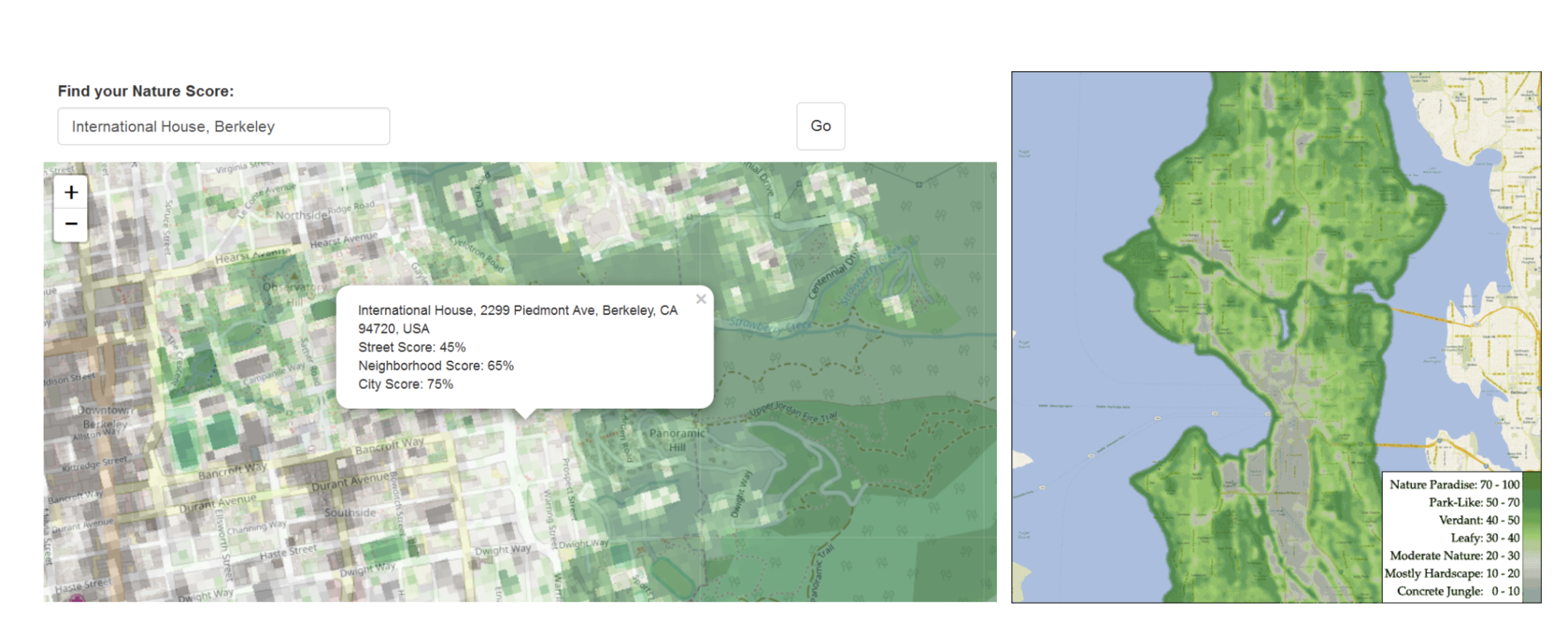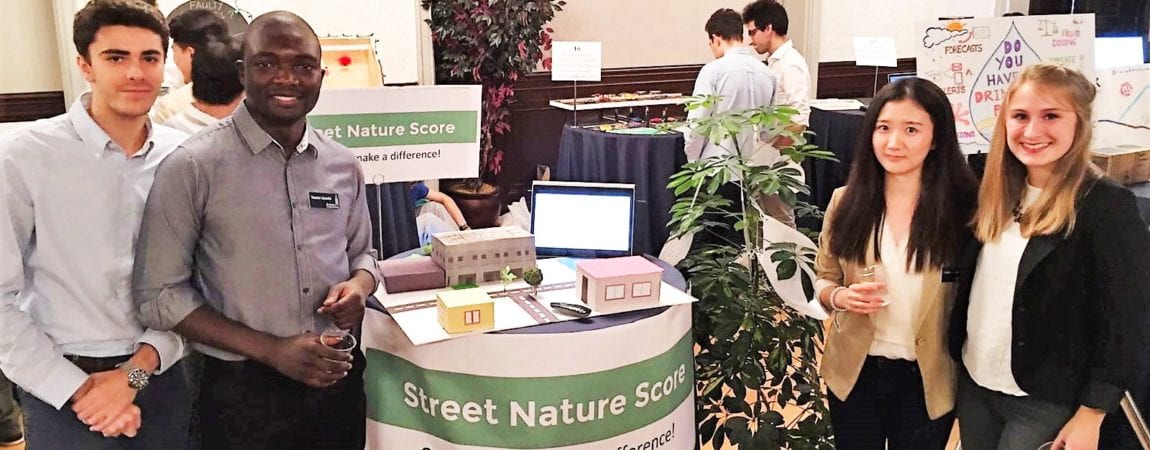The Project
The overall goal of the Street Nature Score project* is to launch a startup that promotes and raises awareness for urban nature. To reach this goal, the team is developing a web platform which quantifies the amount of nature based on satellite data. Users will be able to enter any U.S. address or location of interest and the website will return a set of “nature scores.” This score will be based on a scale of 0–100, with 100 being the highest possible density of urban nature. This individual score will be shown alongside a neighborhood score and a city score, both of which can be used for comparing the individual score against.

Essentially, the nature score is a measure of the area covered by vegetation in comparison to impervious surfaces such as buildings, concrete pavements and asphalt. As such, a score of 100 means the particular area is 100% covered in vegetation (e.g. a park) and a score of 0 means the area is 100% impervious material (e.g. asphalt parking lot). Satellite images (geospatial data) are used to calculate these nature scores, and the team is working on an interactive map to visualize them.
Why is this important?
Urbanization has reached a point where concrete directly replaces nature — the term “concrete jungle” can be aptly applied — which has highly devastating effects on our ecosystem and living conditions. Various studies have proved that urbanization is a catalyst for climate change (70% of current carbon dioxide emissions already come from cities), energy demand, pollution, and a serious threat to biodiversity.
However, urban nature such as parks and street trees are known to mitigate these harmful drawbacks on our living conditions. For example, two medium-sized healthy trees can provide the oxygen required for a single person per year and an acre of mature trees can absorb the amount of CO2 produced by a car over 26,000 miles.
Nature also provides financial benefits which are not immediately apparent. An interesting study released in the Journal of Urban Forestry & Urban Greening shows that a tree on a property increases monthly rent by $5.62, and a tree on the street adjacent increases the rent by $21.00.
It is also important to note that the economic benefits are not limited to the home seeker/owner, because higher property prices lead to higher property tax and more revenue for the local government to improve services. Additionally, since more people tend to live in urban areas with only small or nonexistent private outdoor spaces, it becomes a more important factor for them to live near a park or an open space. Street Nature Score steps in to provide valuable information for their home search that no other service directly offers.
Jacquelin Hansel (Industrial Engineering & Operations Research): Project Manager
Jacquelin has leadership and project management experiences as a managing director of a student consultancy and has worked in the software development of a tech company.
Pierre Fredenucci (Mechanical Engineering, Product Design): Business Development
Pierre has done two internships in Parisians start-ups and has experienced several times the Lean startup approach.
Tinashe Giyavha (Industrial Engineering & Operations Research): Product Manager
Tinashe, using his enterprising abilities and business startup experience, is working to help the Street Nature Score team develop a viable business model around the website and monetize the technology.
Siying Chen (Civil and Environmental Engineering): Software Engineer
Siying has experience working with geographic information systems using interactive mapping and map applications.
← View all Capstone Projects


